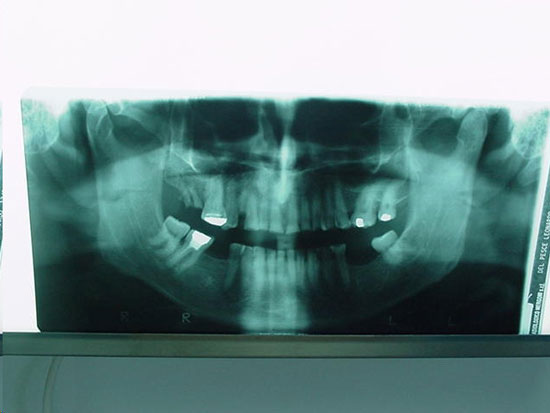The main indicator that a women is going through a transition to menopause is the absence of the monthly period for twelve months. The average age for menopause start is 51.

However, this transition does not just happen overnight. It is gradual and it is different for every woman. Actually, the first signs of menopause can appear whole 10 years before the person is officially in menopause period.
Lots of women think that menopause will make their life simpler, because of the fact that they are over with monthly cycles problems.
However, menopause introduces lots of changes in the organism.
1. Hot Flashes That Go On for Years
This is one of the most common menopause symptoms. Even though it is supposed to be only a flash, they happen for a long time.
The other name for flashes is vasomotor symptoms. They can start in perimenopause, which is the period right before, or early menopause. In some cases, these happen after the last monthly period. The episodes of this symptom are long and they happen in phases.
One study from 2015 discovered that vasomotor symptoms happened more than 7 years during this transitional period to more than 50% of the women, and they stayed for 4,5 years after the menopause occurred.
A different study published in 2016 in Menopause, notes that women usually fall within 4 groups when it comes to this symptom and night sweats.
The out-of-nowhere changes in body temperature can be dangerous for daily life. Consequences can be heart palpitations, anxiety, tension and others. Since it can happen at night it might result in sleep deprivation.
Management of hot flashes inevitably includes avoidance of eventual triggers like spicy food, warm air temperature, hot drinks, alcohol, stressful situations, caffeine and also some medications.
2. Extreme Tiredness
No matter if the cause is hot flashes or poor sleep, the stages of menopause can make your energy levels suffer. It can cause a constant feeling of exhaustion and fatigue. This period is actually very similar to the one after having a baby.
Even conversations can be a hard thing to do, requiring enormous effort.
The levels of hormones like estrogen, thyroid, progesterone and adrenalin change a lot during menopause which can lead to fatigue. All of these play a role in regulation of energy within the cells.
A research from 2015 claims that early menopause and menstrual abnormalities, pain in the pelvis, endometriosis and a hysterectomy, are all in correlation to the syndrome of chronic fatigue.
To battle these two, make a smart plan for the daily routine, finding time to rest whenever needed.
3. Weight Gain
It is really common to gain some weight after menopause. This process of gaining weight usually happens gradually.
According to some data, on average, women gain 5 lbs. Some can eve go as far as 15-25 lbs.
Another study from 2004 published in American Journal of Epidemiology claims that there isn’t a direct link between weight gain in menopause and hormonal changes. The main factors would include lack of exercise and a slower metabolism.
Still, a different research from 2012 published in an International Menopause Society Journal, states that the changes of hormonal levels through menopause periods have a meaningful contribution to abdominal obesity increase.
Gaining weight in this important period is not a good sign, keeping in mind that it presents a risk for breast cancer, heart disease, depression and diabetes.
Healthy lifestyle as well as good diet will help you in keeping your weight under control.
4. More Bad Hair Days
The hair gets thinner, it starts to fall out. This is pretty common for women going through menopause and it can last for a few months because of hormone levels. Estrogen decreases, testosterone in easily changed into dihydrotesteron which causes interruption of regular blood flow to hair follicles.
The hair may be more prone to being dry because of this hormonal imbalance.
One study conducted in England found that hair loss as a symptom of menopause may last for a few years which is longer than anticipated. The average time for these symptoms was a bit over seven years, but many women had them much longer.
5. Sleep Problems
During menopause, there is a significant drop in progesterone and estrogen levels that causes nighttime hot flashes and disturbed sleep.
Estrogen and progesterone decrease causes disturbed sleep. One study from 2005 identified 3 major sleep disturbers: mood disorder and insomnia, increase in the prevalence of sleep-disordered breathing and an increase in the development of fibromyalgia.
Numerous factors directly and indirectly linked to the transition may contribute towards lower sleep quality.
Furthermore, since they don’t get enough sleep during the night, women at this age take long naps which can have an impact on the levels of energy, weight and emotions.
Hot baths from 20 minutes to half an hour before going to bed can help with this issue. Also, try to maintain a consistent sleeping schedule.
6. Bone Loss
Women over the age of 50 are prone to suffering from bone loss and osteoporosis.
After 35, there is gradual loss of bone mass in the organism.
A study from 2008 published that when late perimenopause happens, the loss of bone matter is becoming faster. This pace goes on during the first postmenopause period. It also claims that the body weight is important factor for this pace.
Estrogen is what keeps the bones strong. When menopause happens, this hormone is no longer produced in the ovaries.
Additionally, if you have family history with osteoporosis, be more cautious.
7. Extreme Skin Dryness
The skin is more prone to drying after menopause. Estrogen decrease also influences oil creation in the skin. For some women it can even mean itchy and red skin.
Skin health is also influenced by aging, its ability to maintain hydration levels slowly diminishes contributing to worsening condition.
Research that was published in Clinical Interventions in Aging, shows that aging too influences the physiology of the skin.
The atrophy of the epidermis, dermis and subcutaneous fat is the root of decrease in the skin thickness. As a results, wrinkles and proliferative lesions happen.
To cope with this, try using a better hydrating moisturizer, and drink lots of liquids.
8. Frequent Mood Swings
The changing levels of hormones during the period of menopause can cause changes in the chemistry of the brain which may result in depression. During perimenopause women are more vulnerable to depression.
According to a research from 2011, women are 2-4 times more likely to suffer from a major episode of depression in these periods.
There doesn’t necessary have to be a reason for mood swings, sadness, depression and irritation.
What can help you in these cases is deep breathing, healthy diet, god quality sleep, support from friends and family and meditation.
9. Rise in Bad Cholesterol
Menopause can cause your “bad” cholesterol to rise. It is due to the increasing age as well as the hormonal changes associated with menopause, especially the decrease in estrogen.
Due to the aging process and the hormonal changes, menopause can cause the “bad” cholesterol levels to increase.
The North American Menopause Society conducted a study that showed that menopause diminishes the good cholesterol impact, resulting in women being more vulnerable to artery clogging during this period.
The quality of the good cholesterol may suffer alteration over the transition of the menopause.
Maintaining healthy lifestyle will help in prevention of these events.
10. Memory Issues
This is a common symptom occasionally, unfortunately for some women it can become a big problem.
Constant forgetfulness in menopause is because of the hormone levels, again. Estrogen decrease, affects the levels of cortisol which helps in regulation of the brain chemistry. This imbalance can be a cause of lapses of short-term memory.
A 2011 study that was published in the Obstetrics and Gynecology Clinics of North America reported that periods of menopause can have short and long-term effects on the cognitive function. The effect of this period over the cognition can be subtle and transient.
A different study from 2012 claims that memory issues at the start of menopause period are realistic.
Doing crossword puzzles, reading, playing chess can be your way of staying sharp and challenging the brain.




















